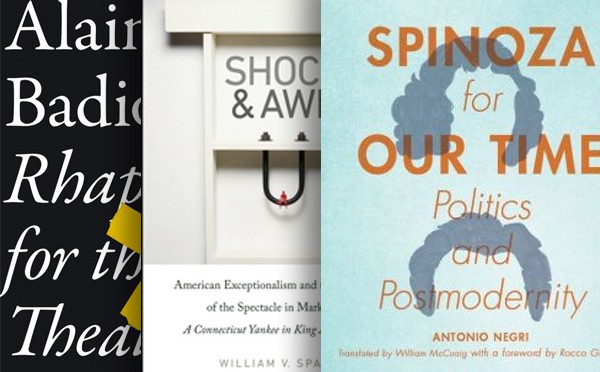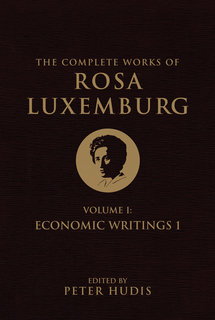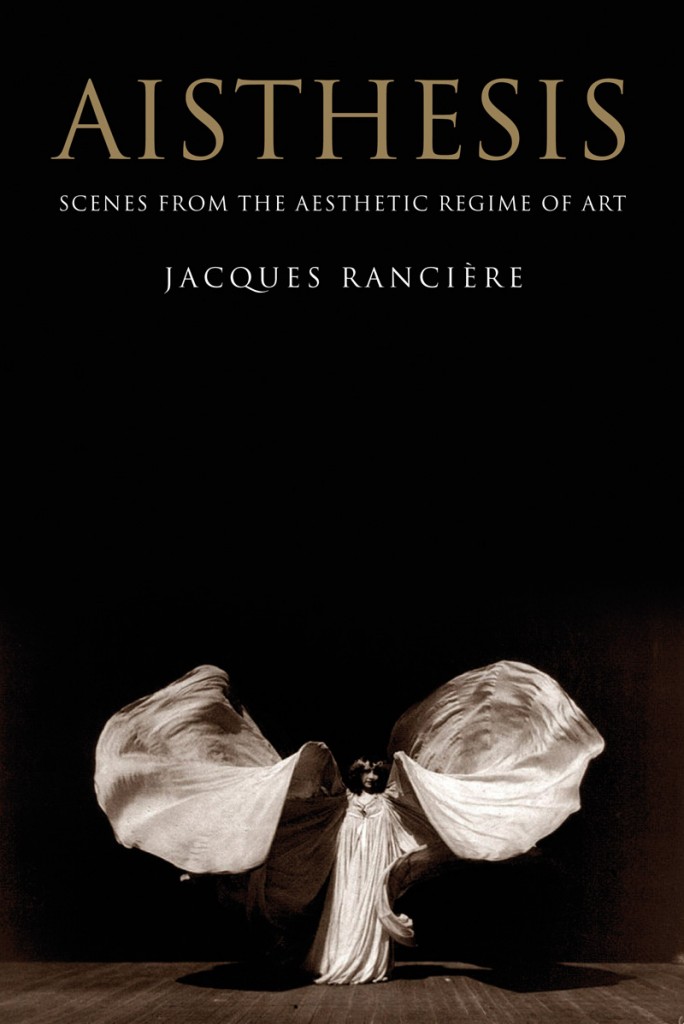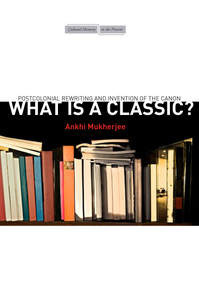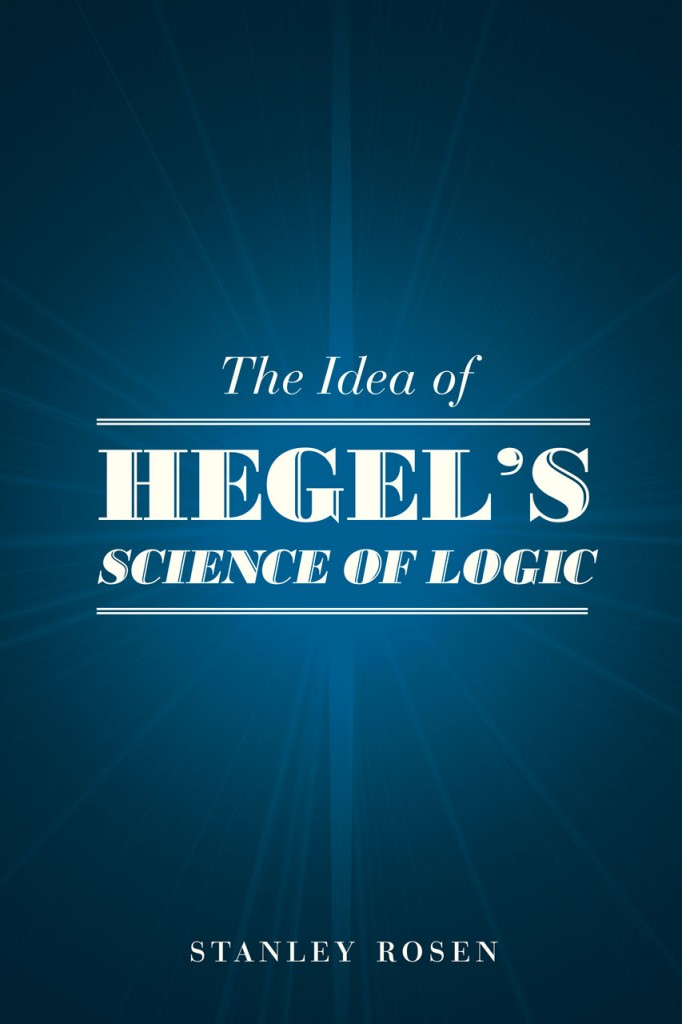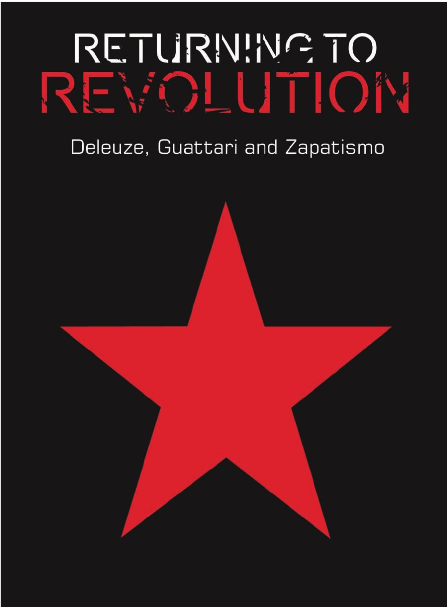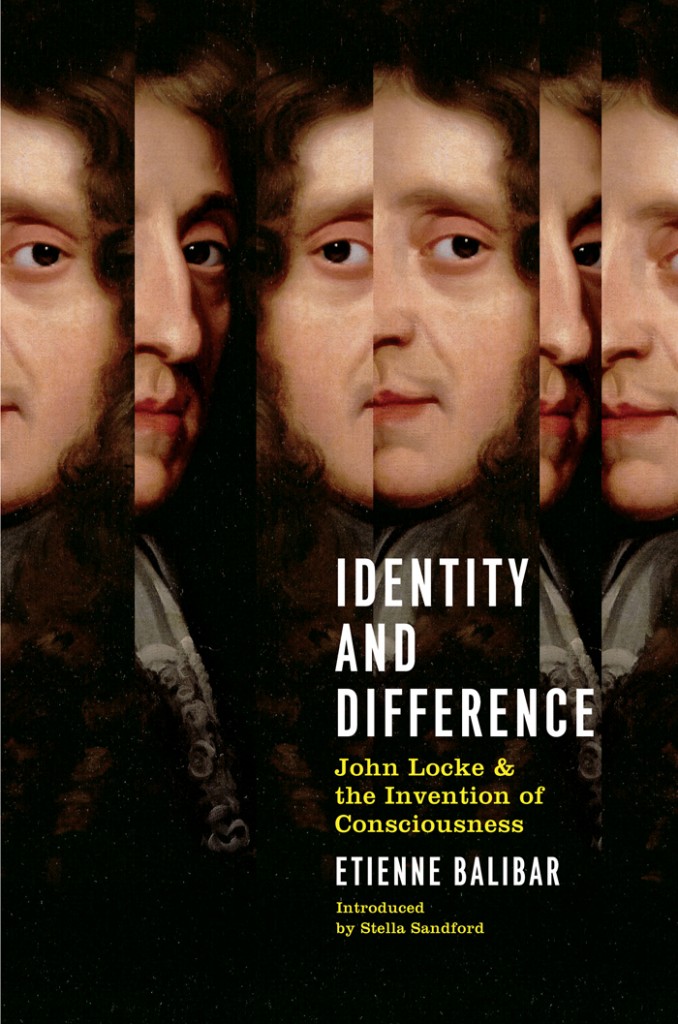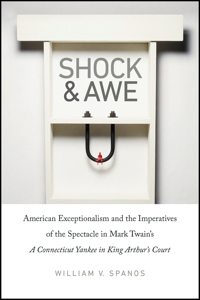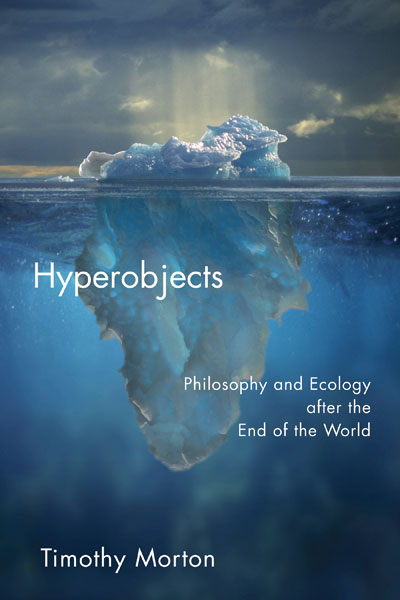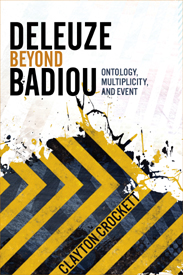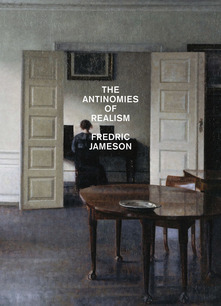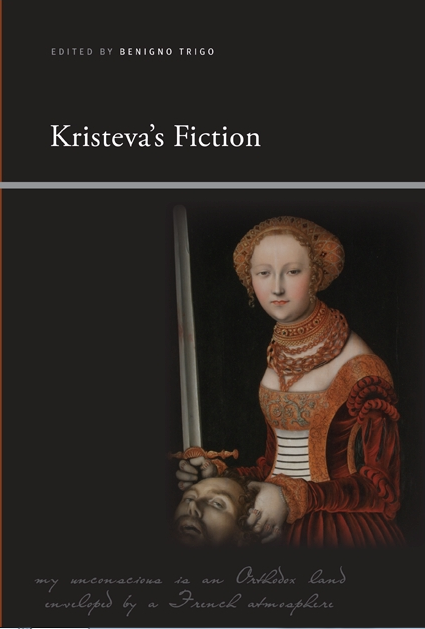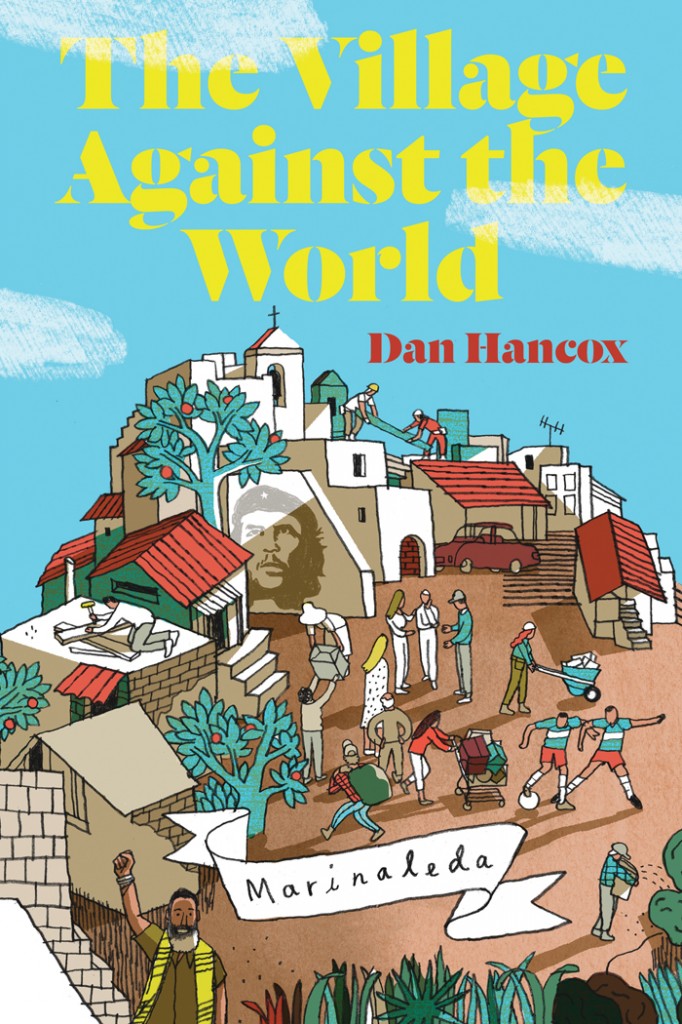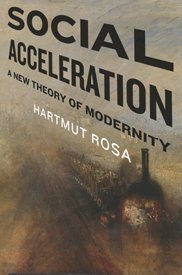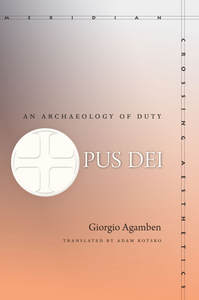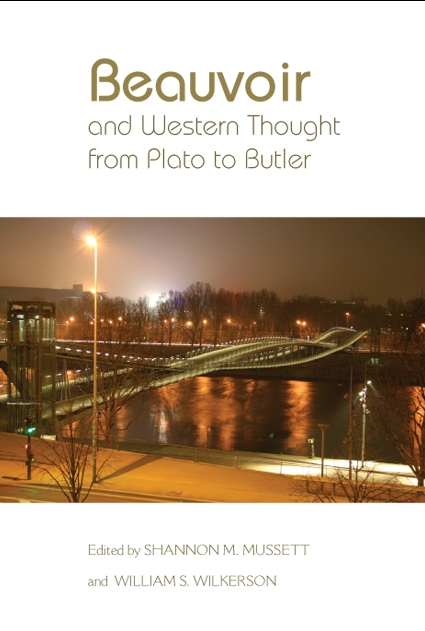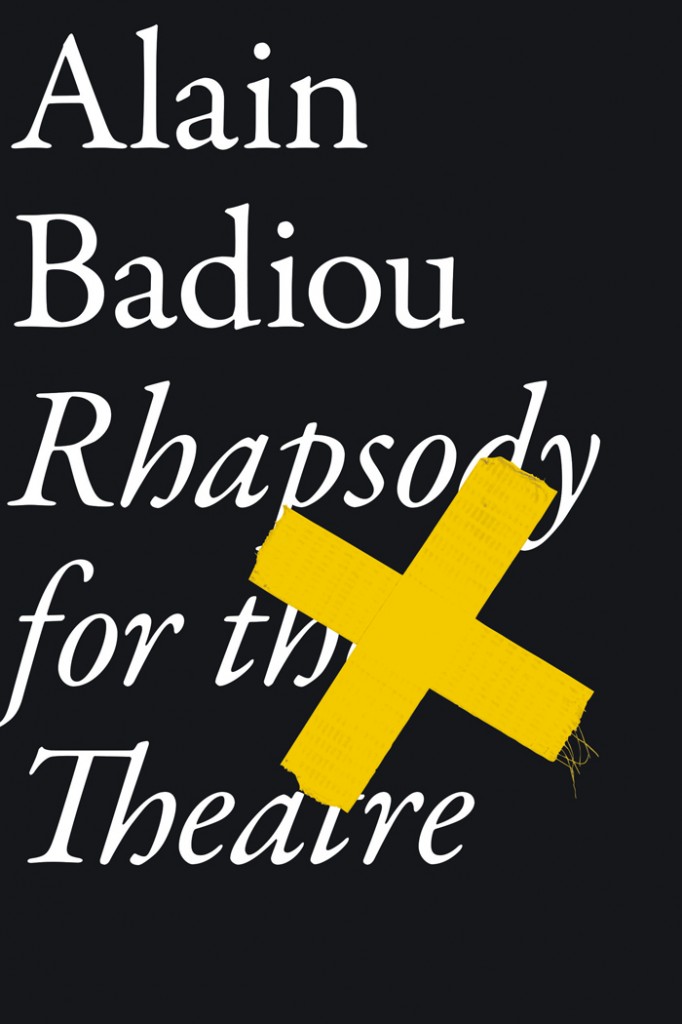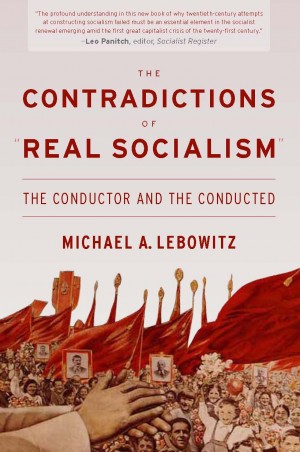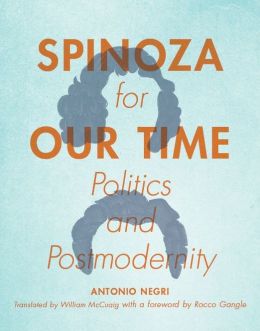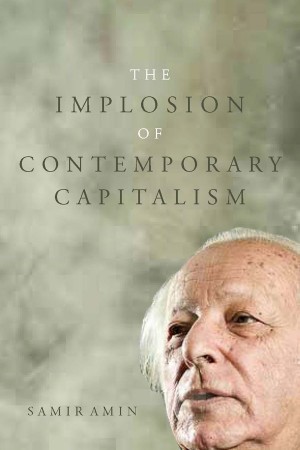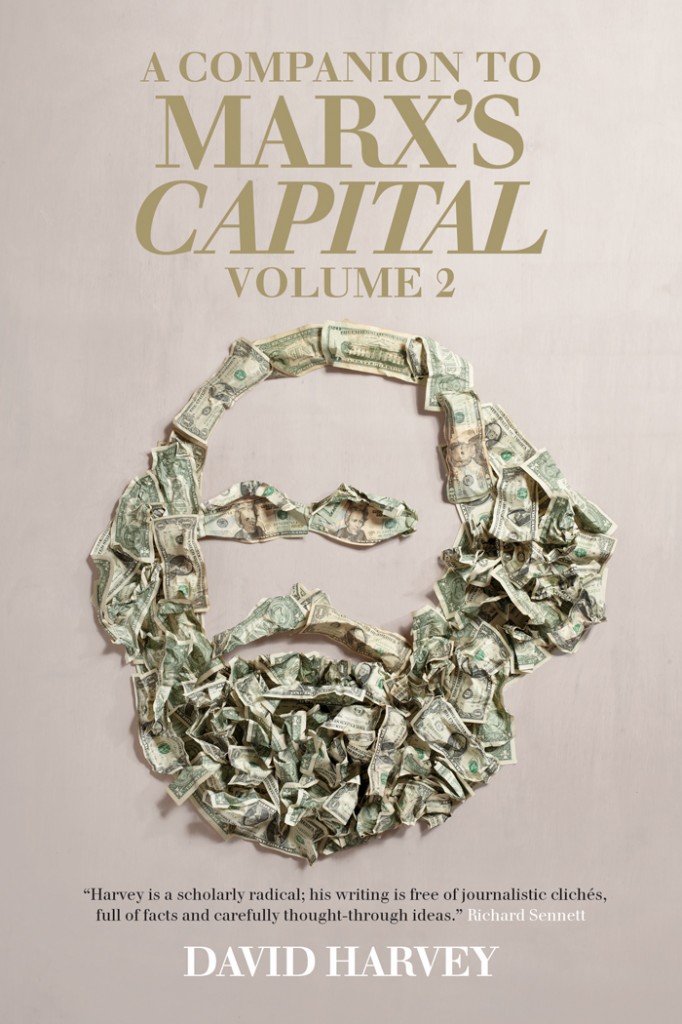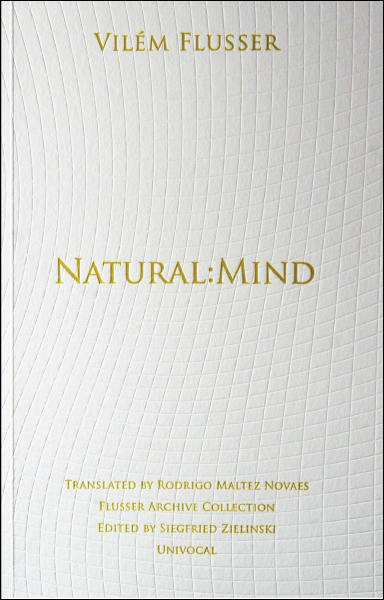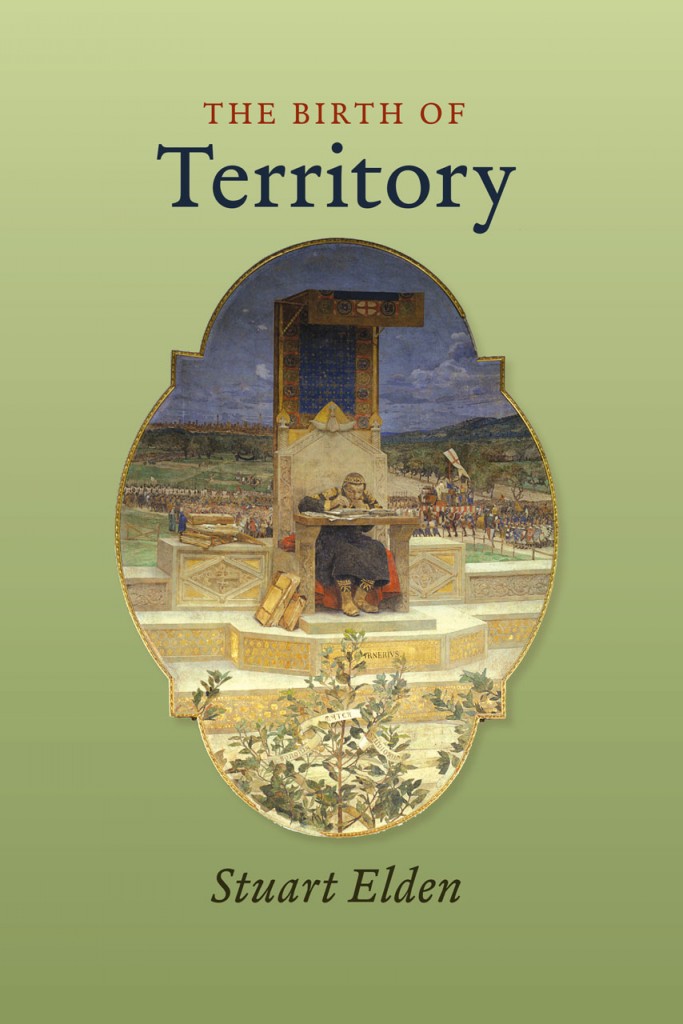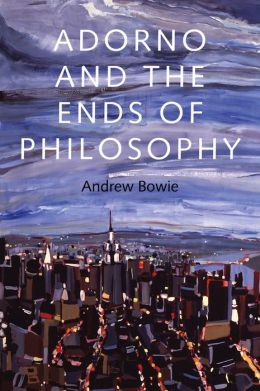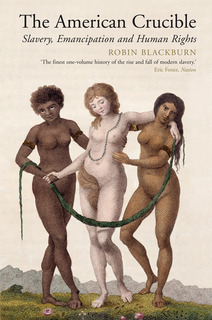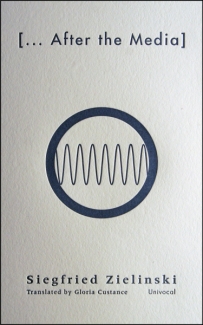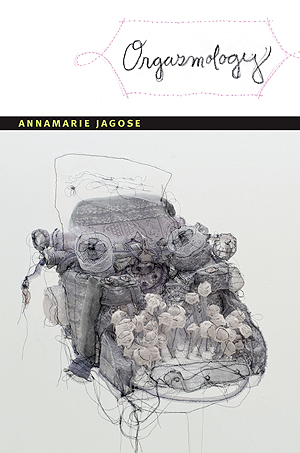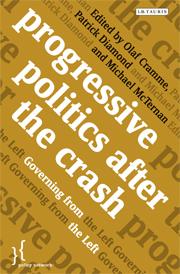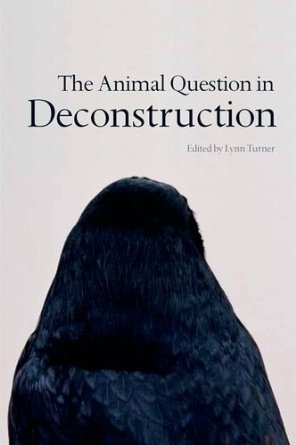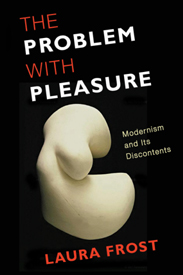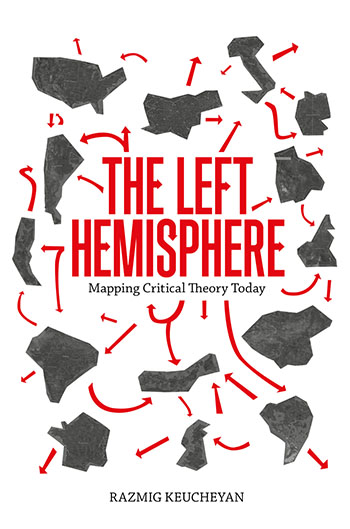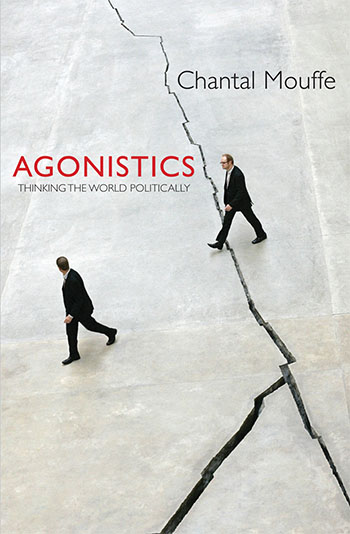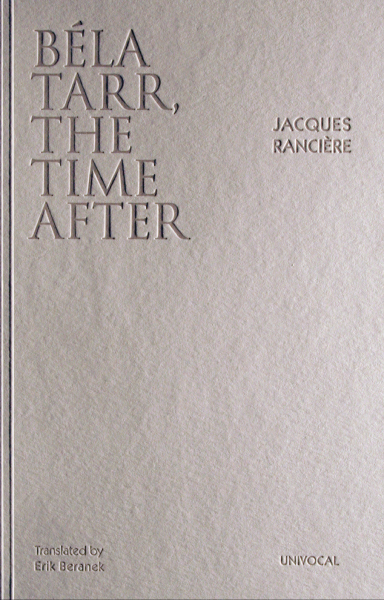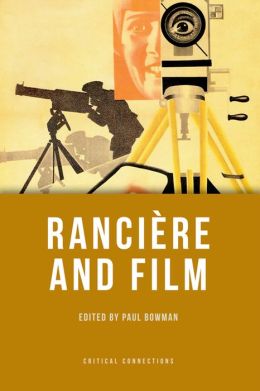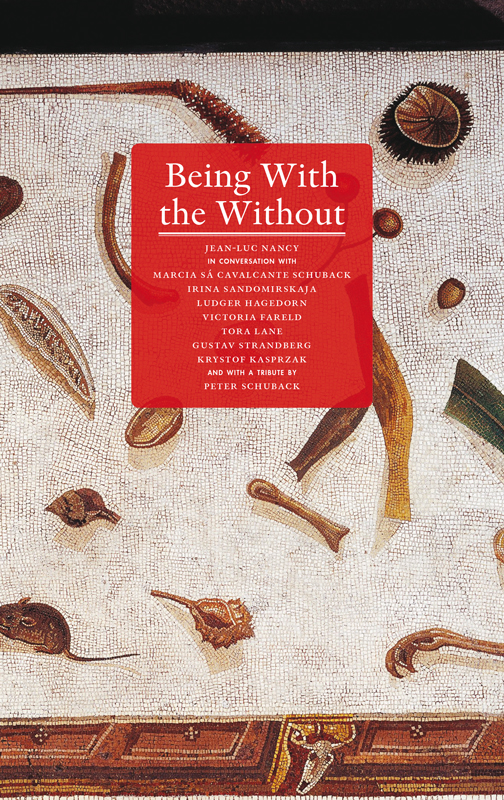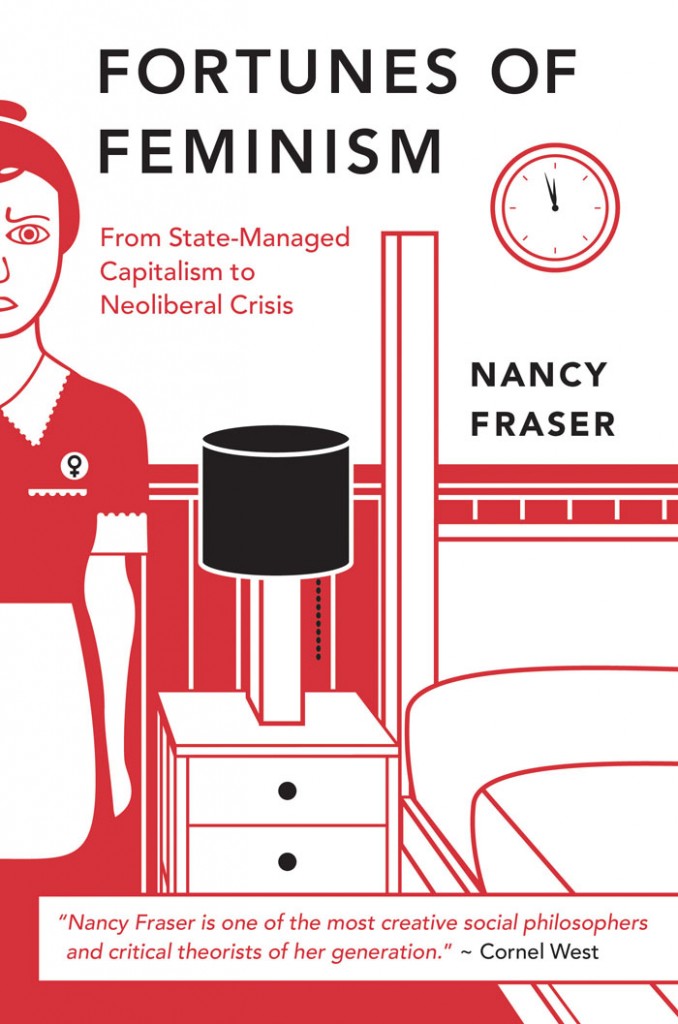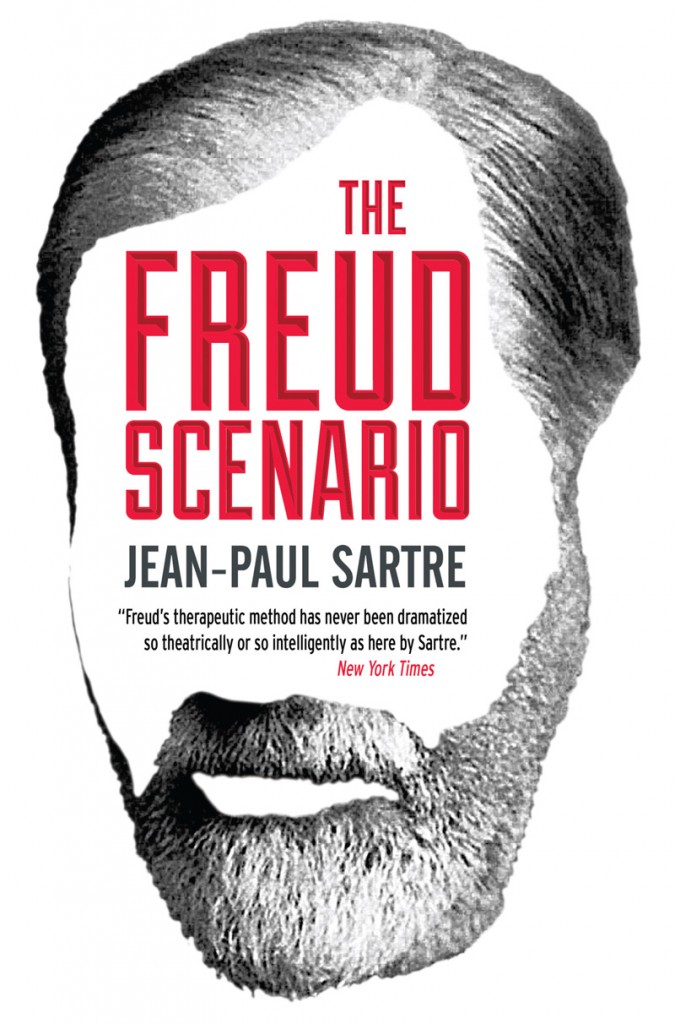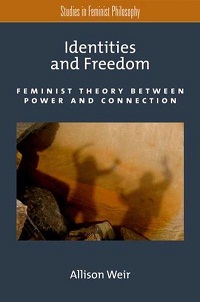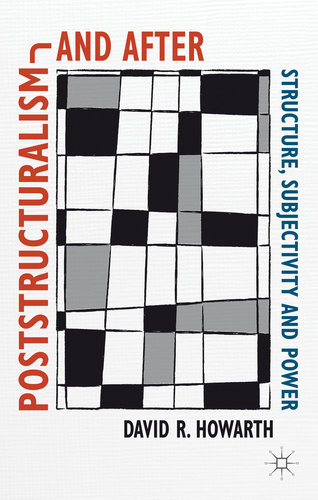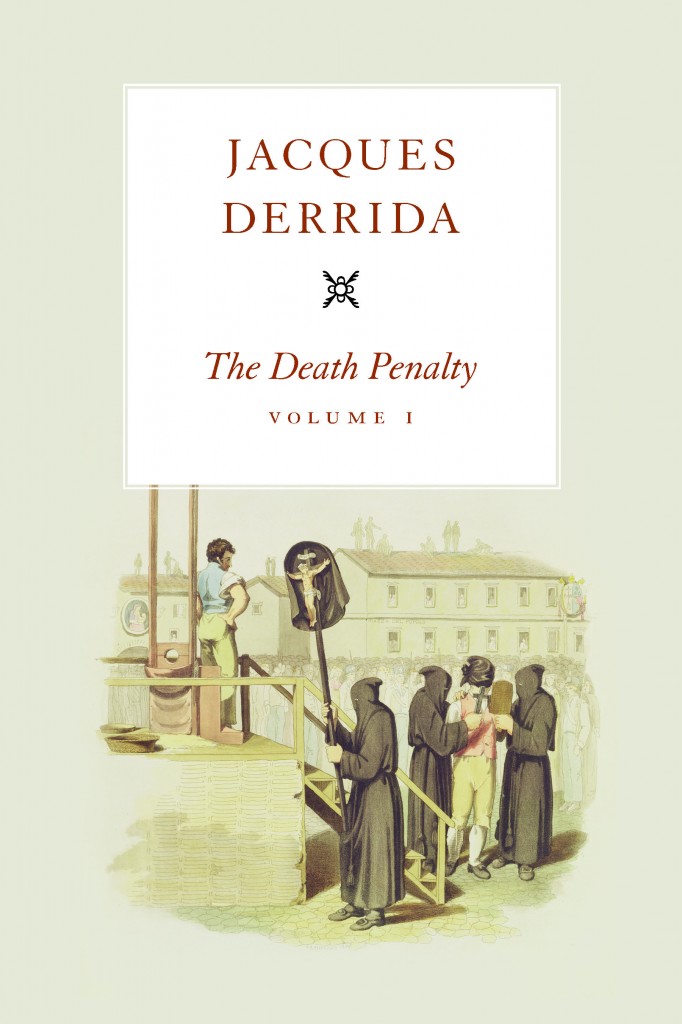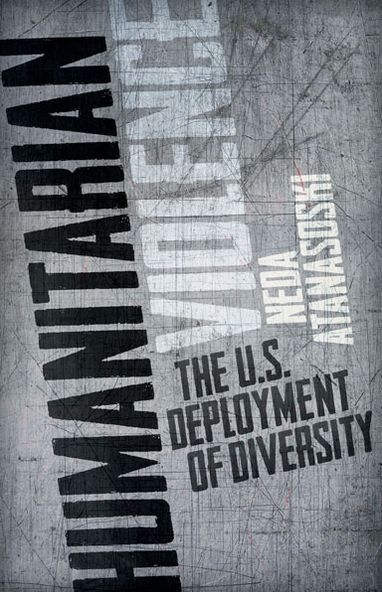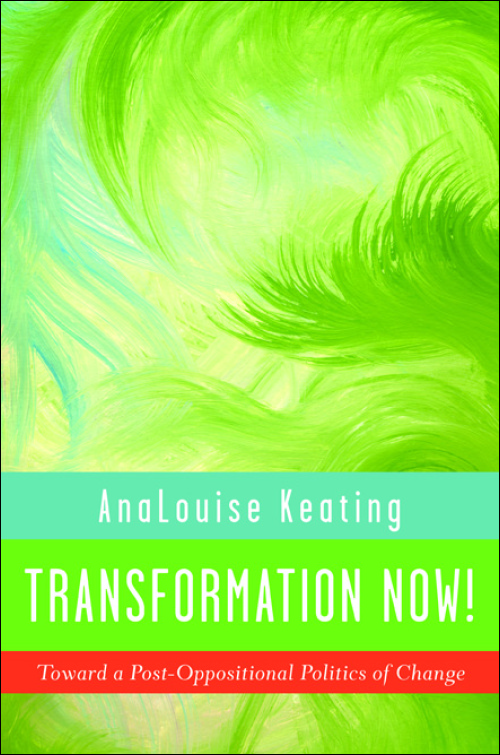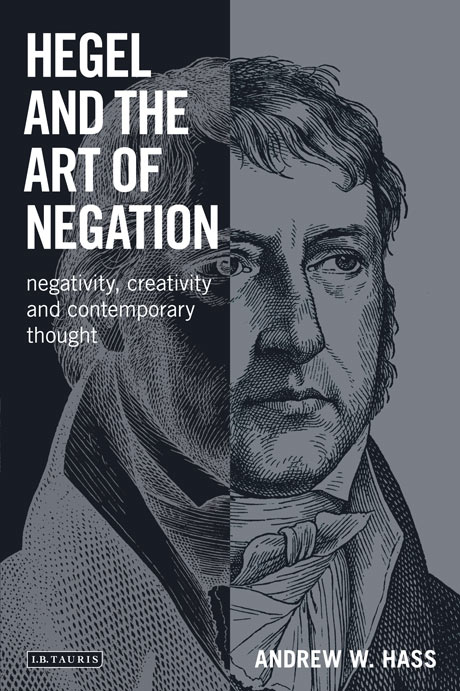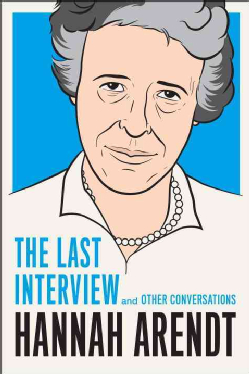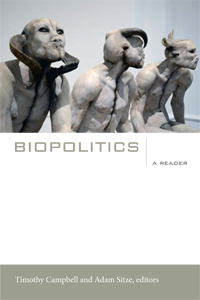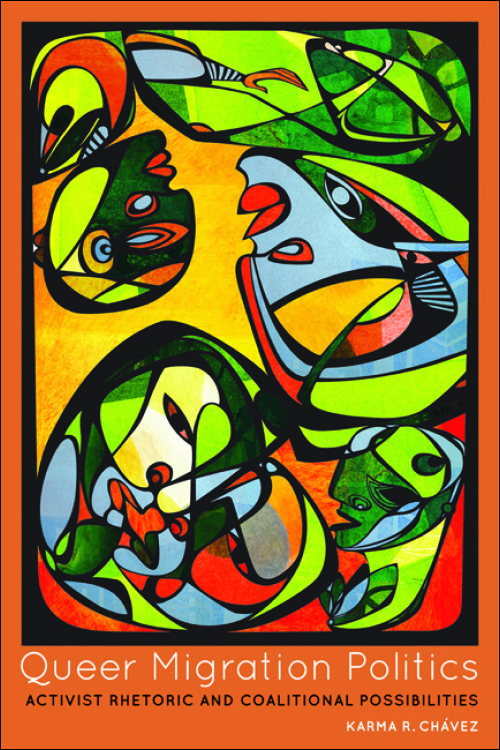Are you an author or publisher with a forthcoming book? Let us know by emailing tips@critical-theory.com to be included in our monthly book roundup.
The Complete Works of Rosa Luxemburg, Vol I
By Rosa Luxemburg
This first volume in Rosa Luxemburg’s Complete Works, entitled Economic Writings 1, contains some of Luxemburg’s most important statements on the globalization of capital, wage labor, imperialism, and pre-capitalist economic formations.
In addition to a new translation of her doctoral dissertation, “The Industrial Development of Poland,” Volume I includes the first complete English-language publication of her “Introduction to Political Economy,” which explores (among other issues) the impact of capitalist commodity production and industrialization on non- capitalist social strata in the developing world. Also appearing here are ten recently discovered manuscripts, none of which has ever before been published in English.
Buy it here.
Aisthesis
By Jacques Ranciere.
Composed in a series of scenes, Aisthesis–Rancière’s definitive statement on the aesthetic–takes its reader from Dresden in 1764 to New York in 1941. Along the way, we view the Belvedere Torso with Winckelmann, accompany Hegel to the museum and Mallarmé to the Folies-Bergère, attend a lecture by Emerson, visit exhibitions in Paris and New York, factories in Berlin, and film sets in Moscow and Hollywood. Rancière uses these sites and events—some famous, others forgotten—to ask what becomes art and what comes of it. He shows how a regime of artistic perception and interpretation was constituted and transformed by erasing the specificities of the different arts, as well as the borders that separated them from ordinary experience. This incisive study provides a history of artistic modernity far removed from the conventional postures of modernism.
Buy it here.
What is a Classic?
What Is a Classic? revisits the famous question posed by critics from Sainte-Beuve and T. S. Eliot to J. M. Coetzee to ask how classics emanate from postcolonial histories and societies. Exploring definitive trends in twentieth- and twenty-first century English and Anglophone literature, Mukherjee demonstrates the relevance of the question of the classic for the global politics of identifying and perpetuating so-called core texts. Emergent canons are scrutinized in the context of the wider cultural phenomena of book prizes, the translation and distribution of world literatures, and multimedia adaptations of world classics. Throughout, Mukherjee attunes traditional literary critical concerns to the value contestations mobilizing postcolonial and world literature. The breadth of debates and topics she addresses, as well as the book’s ambitious historical schema, which includes South Asia, Africa, the Middle East, the West Indies, Australia, New Zealand, Europe, and North America, set this study apart from related titles on the bookshelf today.
Buy it here.
The Idea of Hegel’s Science of Logic
by Stanley Rosen
Although Hegel considered Science of Logic essential to his philosophy, it has received scant commentary compared with the other three books he published in his lifetime. Here philosopher Stanley Rosen rescues the Science of Logic from obscurity, arguing that its neglect is responsible for contemporary philosophy’s fracture into many different and opposed schools of thought. Through deep and careful analysis, Rosen sheds new light on the precise problems that animate Hegel’s overlooked book and their tremendous significance to philosophical conceptions of logic and reason.
Buy it here.
Returning to Revolution: Deleuze, Guattari and Zapatismo
We are witnessing the return of political revolution. However, this is not a return to the classical forms of revolution: the capture of the state, the political representation of the party, the centrality of the proletariat or the leadership of the vanguard. After the failure of such tactics over the last century, revolutionary strategy is now headed in an entirely new direction.
This book argues that Deleuze, Guattari and the Zapatistas are at the theoretical and practical heart of this new direction. Returning to Revolution is the first full-length book devoted to Deleuze and Guattari’s concept of revolution and to their connection with Zapatismo.
Buy it here.
Identity and Difference: John Locke and the Invention of Consciousness
By Etienne Balibar
John Locke’s foundational place in the history of British empiricism and liberal political thought is well established. So, in what sense can Locke be considered a modern European philosopher? Identity and Difference argues for reassessing this canonical figure. Closely examining the “treatise on identity” added to the second edition of An Essay Concerning Human Understanding, Etienne Balibar demonstrates Locke’s role in the formation of two concepts central to the metaphysics of the subject— consciousness and the self—and the complex philosophical, legal, moral and political nature of his terms.
With an accompanying essay by Stella Sandford, situating Balibar’s reading of Locke in the history of the reception of the Essay and within Balibar’s other writings on “the subject,” Identity and Difference rethinks a crucial moment in the history of Western philosophy.
Buy it here.
Beyond the Cyborg: Adventures with Donna Haraway
By Margret Grebowicz and Helen Merrick
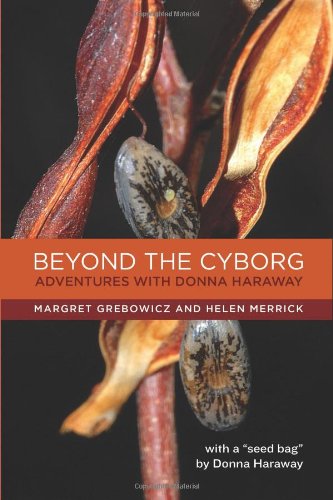
Feminist theorist and philosopher Donna Haraway has substantially impacted thought on science, cyberculture, the environment, animals, and social relations. This long-overdue volume explores her influence on feminist theory and philosophy, paying particular attention to her more recent work on companion species, rather than her “Manifesto for Cyborgs.”
Margret Grebowicz and Helen Merrick argue that the ongoing fascination with, and re-production of, the cyborg has overshadowed Haraway’s extensive body of work in ways that run counter to her own transdisciplinary practices. Sparked by their own personal “adventures” with Haraway’s work, the authors offer readings of her texts framed by a series of theoretical and political perspectives: feminist materialism, standpoint epistemology, radical democratic theory, queer theory, and even science fiction. They situate Haraway’s critical storytelling and “risky reading” practices as forms of feminist methodology and recognize her passionate engagement with “naturecultures” as the theoretical core driving her work. Chapters situate Haraway as critic, theorist, biologist, feminist, historian, and humorist, exploring the full range of her identities and reflecting her commitment to embodying all of these modes simultaneously.
Buy it here.
Shock and Awe: American Exceptionalism and the Imperatives of the Spectacle in Mark Twain’s A Connecticut Yankee in King Arthur’s Court
By William V. Spanos
Inspired by the foreign policy entanglements of recent years, William V. Spanos offers a dramatic interpretation of Twain’s classic A Connecticut Yankee in King Arthur’s Court, providing a fresh assessment of American exceptionalism and the place of a global America in the American imaginary. Spanos insists that Twain identifies with his protagonist, particularly in his defining use of the spectacle, and thus with an American exceptionalism that uncannily anticipates the George W. Bush administration’s normalization of the state of exception and the imperial policy of “preemptive war,” unilateral “regime change,” and “shock and awe” tactics. Equally stimulating is Spanos’s thoroughly original ontology of American exceptionalism and imperialism and his tracing of these forces, through a chronological examination of Twain studies and criticism over the past century.
As an examination of an overlooked text, and a critical history of American studies from its origins in the nation-oriented Myth and Symbol school of the Cold War era to its present globalizing or transnationalizing perspective, Shock and Awe will appeal to a broad audience of American literature scholars and beyond.
Buy it here.
Hyperobjects: Philosophy and Ecology After the End of the World
By Timothy Morton
Having set global warming in irreversible motion, we are facing the possibility of ecological catastrophe. But the environmental emergency is also a crisis for our philosophical habits of thought, confronting us with a problem that seems to defy not only our control but also our understanding. Global warming is perhaps the most dramatic example of what Timothy Morton calls “hyperobjects”—entities of such vast temporal and spatial dimensions that they defeat traditional ideas about what a thing is in the first place. In this book, Morton explains what hyperobjects are and their impact on how we think, how we coexist with one another and with nonhumans, and how we experience our politics, ethics, and art.
Moving fluidly between philosophy, science, literature, visual and conceptual art, and popular culture, the book argues that hyperobjects show that the end of the world has already occurred in the sense that concepts such as world, nature, and even environment are no longer a meaningful horizon against which human events take place. Instead of inhabiting a world, we find ourselves inside a number of hyperobjects, such as climate, nuclear weapons, evolution, or relativity. Such objects put unbearable strains on our normal ways of reasoning.
Insisting that we have to reinvent how we think to even begin to comprehend the world we now live in, Hyperobjects takes the first steps, outlining a genuinely postmodern ecological approach to thought and action.
Buy it here.
Deleuze Beyond Badiou
By Clayton Crockett
First published in 1997, Alain Badiou’s Deleuze: The Clamor of Being cast Gilles Deleuze as a secret philosopher of the One. In this work, Clayton Crockett rehabilitates Deleuze’s position within contemporary political and philosophical thought, advancing an original reading of the thinker’s major works and a constructive conception of his philosophical ontology. Through close readings of Deleuze’s Difference and Repetition, Capitalism and Schizophrenia (with Felix Guattari), and Cinema 2, Crockett argues that Deleuze is anything but the austere, quietistic, and aristocratic intellectual Badiou had portrayed. Instead, Crockett underscores Deleuze’s radical aesthetics and innovative scientific, political, and mathematical forms of thought. He also refutes the notion Deleuze retreated from politics toward the end of his life. Using Badiou’s critique as a foil, Crockett maintains the profound continuity of Deleuze’s work and builds a general interpretation of his more obscure formulations.
Buy it here.
The Antinomies of Realism
By Fredric Jameson
The Antinomies of Realism is a history of the nineteenth-century realist novel and its legacy told without a glimmer of nostalgia for artistic achievements that the movement of history makes it impossible to recreate. The works of Zola, Tolstoy, Pérez Galdós, and George Eliot are in the most profound sense inimitable, yet continue to dominate the novel form to this day. Novels to emerge since struggle to reconcile the social conditions of their own creation with the history of this mode of writing: the so-called modernist novel is one attempted solution to this conflict, as is the ever-more impoverished variety of commercial narratives—what today’s book reviewers dub “serious novels,” which are an attempt at the impossible endeavor to roll back the past.
Fredric Jameson examines the most influential theories of artistic and literary realism, approaching the subject himself in terms of the social and historical preconditions for realism’s emergence. The realist novel combined an attention to the body and its states of feeling with a focus on the quest for individual realization within the confines of history.
Buy it here.
Kristeva’s Fiction
By Benigno Trigo
With published work spanning more than forty years, Julia Kristeva’s influence in psychoanalysis and literary theory is difficult to overstate. In addition to this scholarship Kristeva has written several novels, however this portion of her oeuvre has received comparatively scant attention. In this book, Kristeva scholars from a number of disciplines analyze her novels in relation to her work in psychoanalysis, interrogating the relationships between fiction and theory. The essays explore questions including, what is the value of experimental writing that escapes easy definition and classification, putting ideas at the same level as character, pacing, plot, suspense, form, and style? And, how might such fiction help its readers overcome the psychological maladies that affect contemporary society? The contributors make a compelling case for understanding Kristeva’s fiction as a crucial influence to her wider psychoanalytic project.
Buy it here.
The Village Against The World
One hundred kilometres from Seville lies the small village of Marinaleda, which for the last thirty-five years has been the centre of a tireless struggle to create a living utopia. This unique community drew British author Dan Hancox to Spain, and here for the first time he recounts the fascinating story of villagers who expropriated the land owned by wealthy aristocrats and have, since the 1980s, made it the foundation of a cooperative way of life.
Today, Marinaleda is a place where the farms and the processing plants are collectively owned and provide work for everyone who wants it. A mortgage is €15 per month, sport is played in a stadium emblazoned with a huge mural of Che Guevara, and there are monthly ‘Red Sundays’ when everyone works together to clean up the neighbourhood. Leading this revolution is the village mayor, Juan Manuel Sánchez Gordillo, who in 2012 became a household name in Spain after heading raids on local supermarkets to feed the Andalusian unemployed.
Read the CT review, or buy it here.
Social Acceleration: A New Theory of Modernity
Hartmut Rosa advances an account of the temporal structure of society from the perspective of critical theory. He identifies three categories of change in the tempo of modern social life: technological acceleration, evident in transportation, communication, and production; the acceleration of social change, reflected in cultural knowledge, social institutions, and personal relationships; and acceleration in the pace of life, which happens despite the expectation that technological change should increase an individual’s free time.
According to Rosa, both the structural and cultural aspects of our institutions and practices are marked by the “shrinking of the present,” a decreasing time period during which expectations based on past experience reliably match the future. When this phenomenon combines with technological acceleration and the increasing pace of life, time seems to flow ever faster, making our relationships to each other and the world fluid and problematic. It is as if we are standing on “slipping slopes,” a steep social terrain that is itself in motion and in turn demands faster lives and technology. As Rosa deftly shows, this self-reinforcing feedback loop fundamentally determines the character of modern life.
Buy it here.
Opus Dei: An Archaeology of Duty
By Giorgio Agamben
In this follow-up to The Kingdom and the Glory and The Highest Poverty, Agamben investigates the roots of our moral concept of duty in the theory and practice of Christian liturgy. Beginning with the New Testament and working through to late scholasticism and modern papal encyclicals, Agamben traces the Church’s attempts to repeat Christ’s unrepeatable sacrifice. Crucial here is the paradoxical figure of the priest, who becomes more and more a pure instrument of God’s power, so that his own motives and character are entirely indifferent as long as he carries out his priestly duties. In modernity, Agamben argues, the Christian priest has become the model ethical subject. We see this above all in Kantian ethics. Contrasting the Christian and modern ontology of duty with the classical ontology of being, Agamben contends that Western philosophy has unfolded in the tension between the two. This latest installment in the study of Western political structures begun in Homo Sacer is a contribution to the study of liturgy, an extension of Nietzsche’s genealogy of morals, and a reworking of Heidegger’s history of Being.
Buy it here.
Beauvoir and Western Thought
By Various.
Despite a deep familiarity with the philosophical tradition and despite the groundbreaking influence of her own work, Simone de Beauvoir never embraced the idea of herself as a philosopher. Her legacy is similarly complicated. She is acclaimed as a revolutionary thinker on issues of gender, age, and oppression, but although much has been written weighing the influence she and Jean-Paul Sartre had on one another, the extent and sophistication of her engagement with the Western tradition broadly goes mostly unnoticed. This volume turns the spotlight on exactly that, examining Beauvoir’s dialogue with her influences and contemporaries, as well as her impact on later thinkers—concluding with an autobiographical essay by bell hooks discussing the influence of Beauvoir’s philosophy and life on her own work and career. These innovative essays both broaden our understanding of Beauvoir and suggest new ways of understanding canonical figures through the lens of her work.
Buy it here.
Rhapsody for the Theatre
By Alain Badiou
For Alain Badiou, theatre—unlike cinema—creates a space in which philosophy can be lived. It is, of all the arts, the most closely related to politics: both depend on a limited number of texts or statements, which are collectively enacted by a group of actors or militants who test the limits of the structure inn which they are confined, be it the medium of drama or the nation-state. For this reason, the history of theatre is inseparable from the history of state repression and censorship.
This definitive collection of Badiou’s work on the theatre includes not only the title essay ‘Rhapsody for the Theatre’, originally published as a pamphlet in France, but also essay on Jean-Paul Sartre, on the political destiny of contemporary drama, and on Badiou’s own work as a playwright.
Buy it here.
The Contradictions of ‘Real Socialism”
What was “real socialism”—the term which originated in twentieth-century socialist societies for the purpose of distinguishing them from abstract, theoretical socialism? In this volume, Michael A. Lebowitz considers the nature, tendencies, and contradictions of those societies. Beginning with the constant presence of shortages within “real socialism,” Lebowitz searches for the inner relations which generate these patterns. He finds these, in particular, in what he calls “vanguard relations of production,” a relation which takes the apparent form of a social contract where workers obtain benefits not available to their counterparts in capitalism but lack the power to decide within the workplace and society.
Buy it here.
Spinoza for Our Time
by Antonio Negri
Antonio Negri, one of the world’s leading scholars on Baruch Spinoza (1632–1677) and his contemporary legacy, offers a straightforward explanation of the philosopher’s elaborate arguments and a persuasive case for his ongoing relevance. Responding to a resurgent interest in Spinoza’s thought and its potential application to contemporary global issues, Negri demonstrates the thinker’s special value to politics, philosophy, and related disciplines.
Negri’s work is both a return to and an advancement of his initial affirmation of Spinozian thought in The Savage Anomaly. He further defends his understanding of the philosopher as a proto-postmodernist, or a thinker who is just now, with the advent of the postmodern, becoming contemporary. Negri also connects Spinoza’s theories to recent trends in political philosophy, particularly the reengagement with Carl Schmitt’s “political theology,” and the history of philosophy, including the argument that Spinoza belongs to a “radical enlightenment.” By positioning Spinoza as a contemporary revolutionary intellectual, Negri addresses and effectively defeats twentieth-century critiques of the thinker waged by Jacques Derrida, Alain Badiou, and Giorgio Agamben.
Buy it here.
The Implosion of Contemporary Capitalism
By Samir Amin
Renowned political economist Samir Amin, engaged in a unique lifelong effort both to narrate and affect the human condition on a global scale, brings his analysis up to the present—the world of 2013. The key events of our times—financial crisis, the emerging nations, globalization, financialization, political Islam, Euro–zone implosion—are related in a coherent, historically based, account.
Changes in contemporary capitalism require an updating of definitions and analysis of social classes, class struggles, political parties, social movements and the ideological forms in which they express their modes of action in the transformation of societies. Amin meets this challenge and lays bare the reality of monopoly capitalism in its general, global form. Ultimately, Amin demonstrates that this system is not viable and that the implosion in progress is unavoidable. Whether humanity will rise to the challenge of building a more humane global order free of the contradictions of capital, however, is yet to be seen.
Buy it here.
Ranciere Now
by Oliver Davis
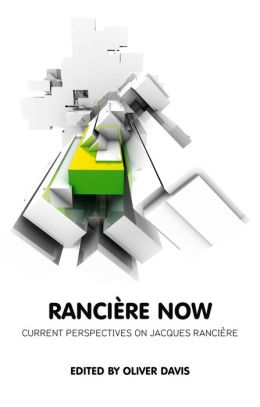 The French philosopher Jacques Rancière is well known across the world for his groundbreaking contributions to aesthetic and political theory and for his radical rethinking of the question of equality. This much-needed new collection situates Rancière’s thought in a range of practical and theoretical contexts.
The French philosopher Jacques Rancière is well known across the world for his groundbreaking contributions to aesthetic and political theory and for his radical rethinking of the question of equality. This much-needed new collection situates Rancière’s thought in a range of practical and theoretical contexts.
These specially commissioned essays cover the complete history of Rancière’s work and reflect its interdisciplinary reach. They span his early historical research of the 1960s and ’70s, his celebrated critique of pedagogy and his later political theory of dissensus and disagreement, as well as his ongoing analysis of literature and ‘the aesthetic regime of art’. Rancière’s resistance to psychoanalytic thinking is also explored, as are his most recent publications on film and film theory. Contributors include Tom Conley, Carolyn Steedman, Geneviève Fraisse, Jean-Luc Nancy, Jeremy Lane, and many more. The book also includes a brand new interview with Rancière, reflecting on his intellectual project and developing new lines of thought from his latest major work, Aisthesis.
Buy it here.
A Companion to Marx’s Capital, Volume 2
by David Harvey
The biggest financial crisis since the Great Depression shows no sign of ending, and Marx’s work remains key to any attempt to understand the ebb and flow of capitalist economies. For nearly forty years, David Harvey has written and lectured on Capital, becoming one of the world’s foremost Marx scholars.
Based on his recent lectures, and following the success of his companion to the first volume of Capital, Harvey turns his attention to Volume 2, aiming to bring his depth of learning to a broader audience, guiding first-time readers through a fascinating and often-neglected text. Whereas Volume 1 focuses on production, Volume 2 looks at how value comes into being through the buying and selling of goods. Harvey also introduces elements from Volume 3 on credit and finance to help illustrate aspects of the contemporary crisis.
This is a must-read for anyone wanting a fuller understanding of Marx’s political economy. David Harvey’s video lecture course on Marx’s Capital can be found here.
Buy it here.
Natural:Mind
by Vilem Flusser
In Natural:Mind, published for the first time in 1979 in São Paulo, Brazil, Vilém Flusser explores the paradoxical relation between the concepts of nature and culture through a lively para-phenomenological analysis of natural and cultural phenomena. Can culture be considered natural and nature cultural? If culture is our natural habitat then do we not inhabit nature? These are only some of the questions that are raised in Natural:Mind in order to examine our continual redefinition of both terms and what that means for us existentially.
Always applying his fluid and imagistic Husserlian style of phenomenology, Flusser explores different perspectives and relations of objects from everyday life. The book is comprised of a series of essays based on close observations of familiar things such as paths, valleys, cows, meadows, trees, fingers, grass, the moon, and buttons. By focusing on things we mostly take for granted he manages not only to reveal some aspects of their real and obscured nature, but also to radically change the way we look at them. The ordinary cow will never be same again.
Buy it here.
The Birth of Territory
by Stuart Elden
Territory is one of the central political concepts of the modern world and, indeed, functions as the primary way the world is divided and controlled politically. Yet territory has not received the critical attention afforded to other crucial concepts such as sovereignty, rights, and justice. While territory continues to matter politically, and territorial disputes and arrangements are studied in detail, the concept of territory itself is often neglected today. Where did the idea of exclusive ownership of a portion of the earth’s surface come from, and what kinds of complexities are hidden behind that seemingly straightforward definition?
The Birth of Territory provides a detailed account of the emergence of territory within Western political thought. Looking at ancient, medieval, Renaissance, and early modern thought, Stuart Elden examines the evolution of the concept of territory from ancient Greece to the seventeenth century to determine how we arrived at our contemporary understanding. Elden addresses a range of historical, political, and literary texts and practices, as well as a number of key players—historians, poets, philosophers, theologians, and secular political theorists—and in doing so sheds new light on the way the world came to be ordered and how the earth’s surface is divided, controlled, and administered.
Buy it here.
Adorno and the Ends of Philosophy
by Andrew Bowie
Theodor Adorno’s reputation as a cultural critic has been well-established for some time, but his status as a philosopher remains unclear. In Adorno and the Ends of Philosophy Andrew Bowie seeks to establish what Adorno can contribute to philosophy today.
Adorno’s published texts are notably difficult and have tended to hinder his reception by a broad philosophical audience. His main influence as a philosopher when he was alive was, though, often based on his very lucid public lectures. Drawing on these lectures, both published and unpublished, Bowie argues that important recent interpretations of Hegel, and related developments in pragmatism, echo key ideas in Adorno’s thought. At the same time, Adorno’s insistence that philosophy should make the Holocaust central to the assessment of modern rationality suggests ways in which these approaches should be complemented by his preparedness to confront some of the most disturbing aspects of modern history. What emerges is a remarkably clear and engaging re-interpretation of Adorno’s thought, as well as an illuminating and original review of the state of contemporary philosophy.
Adorno and the Ends of Philosophy will be indispensable to students of Adorno’s work at all levels. This compelling book is also set to ignite debate surrounding the reception of Adorno’s philosophy and bring him into the mainstream of philosophical debate at a time when the divisions between analytical and European philosophy are increasingly breaking down.
Buy it here.
Gendering Global Conflict: Toward a Feminist Theory of War
by Laura Sjoberg
Laura Sjoberg positions gender and gender subordination as key factors in the making and fighting of global conflict. Through the lens ofgender, she examines the meaning, causes, practices, and experiences of war, building a more inclusive approach to the analysis of violent conflict between states.
Considering war at the international, state, substate, and individual levels, Sjoberg’s feminist perspective elevates a number of causal variables in war decision-making. These include structural gender inequality, cycles of gendered violence, state masculine posturing, the often overlooked role of emotion in political interactions, gendered understandings of power, and states’ mistaken perception of their own autonomy and unitary nature. Gendering Global Conflict also calls attention to understudied spaces that can be sites of war, such as the workplace, the household, and even the bedroom. Her findings show gender to be a linchpin of even the most tedious and seemingly bland tactical and logistical decisions in violent conflict. Armed with that information, Sjoberg undertakes the task of redefining and reintroducing critical readings of war’s political, economic, and humanitarian dimensions, developing the beginnings of a feminist theory of war.
Buy it here.
The American Crucible: Slavery, Emancipation and Human Rights
by Robin Blackburn
The American Crucible furnishes a vivid and authoritative history of the rise and fall of slavery in the Americas. For over three centuries enslavement promoted the rise of capitalism in the Atlantic world. The New World became the crucible for a succession of fateful experiments in colonization, silver mining, plantation agriculture, racial enslavement, colonial rebellion, slave witness and slave resistance. Slave produce raised up empires, fostered new cultures of consumption and financed the breakthrough to an industrial order.
Not until the stirrings of a revolutionary age in the 1780s was there the first public challenge to the ‘peculiar institution’. An anti-slavery alliance then set the scene for great acts of emancipation in Haiti in 1804, Britain in 1833–8, the United States in the 1860s, and Cuba and Brazil in the 1880s. In The American Crucible, Robin Blackburn argues that the anti-slavery movement forged many of the ideals we live by today.
Buy it here.
[After the media…]
By Siegfried Zielinski
The media are now redundant. In an overview of developments spanning the last seventy years, Siegfried Zielinski’s [… After the Media] discusses how the means of technology-based communication assumed a systemic character and how theory, art, and criticism were operative in this process. Media-explicit thinking is contrasted with media-implicit thought. Points of contact with an arts perspective include a reinterpretation of the artist Nam June Paik and an introduction to the work of Jake and Dinos Chapman. The essay ends with two appeals. In an outline of a precise philology of exact things, Zielinski suggests possibilities of how things could proceed after the media. With a Vademecum against psychopathia medialis in the form of a manifesto, the book advocates for a distinction to be made between online existence and offline being.
Buy it here.
Orgasmology
By Annamarie Jagose
For all its vaunted attention to sexuality, queer theory has had relatively little to say about sex, the material and psychic practices through which erotic gratification is sought. In Orgasmology, Annamarie Jagose takes orgasm as her queer scholarly object. From simultaneous to fake orgasms, from medical imaging to pornographic visualization, from impersonal sexual publics to domestic erotic intimacies, Jagose traces the career of orgasm across the twentieth century.
Along the way, she examines marriage manuals of the 1920s and 1930s, designed to teach heterosexual couples how to achieve simultaneous orgasms; provides a queer reading of behavioral modification practices of the 1960s and 1970s, aimed at transforming gay men into heterosexuals; and demonstrates how representations of orgasm have shaped ideas about sexuality and sexual identity.
A confident and often counterintuitive engagement with feminist and queer traditions of critical thought, Orgasmology affords fresh perspectives on not just sex, sexual orientation, and histories of sexuality, but also agency, ethics, intimacy, modernity, selfhood, and sociality. As modern subjects, we presume we already know everything there is to know about orgasm. This elegantly argued book suggests that orgasm still has plenty to teach us.
Buy it here.
Progressive Politics After the Crash: Governing from the Left
By Various.
Those who hoped the collapse of financial markets would usher in the end of neoliberalism and rehabilitate support for traditional social democratic policies programmes have been disappointed. It is not only the irrationality of markets which is the focus of public discontent, but the inefficiency of states and the inability of elected governments to humanise and control global market capitalism.
Despite recent successes, social democratic parties in the EU have become locked in a cycle of electoral under-performance. The crisis remedies of the Right appear more simple and direct in their diagnosis, casting the state as restrictive, wasteful and inefficient. Abstract theoretical debates on the Left about a ‘paradigm shift’ in Western capitalism in the aftermath of the crisis have had little traction.
So, in the aftermath of the 2008 crash prompted by the failure of US financial services conglomerate, Lehman Brothers, this book addresses a deceptively simple question: what is to be done? It makes the case for a new, post-crisis settlement harnessing the dynamic traditions of social liberalism and social democracy as the foundation for progressive reforms geared towards alleviating crisis aftershocks and addressing the deep-seated structural challenges afflicting western capitalist democracies.
Buy it here.
The Animal Question in Deconstruction
by Lynn Turner
Explores the political and poetic understanding of the deconstruction of the ‘animal question’How does deconstruction understand relations between humans and other animals? This collection of essays reveals that across Jacques Derrida’s work as a whole, as well as that of Hélène Cixous and Nicholas Royle, deconstruction has always addressed questions about animality. In this collection, for example, Cixous asks after human intervention between the death of a wild bird and the predation of a domestic cat. Kelly Oliver pursues Derrida’s analysis of what or whose gaze is at stake when a King oversees the autopsy of an elephant. Royle examines in what sense the vulnerable impressions made by the tunnelling of a mole might be thought of as the traces of a text. Re-examining how we relate to other animals has far-reaching implications for how we think of ourselves. Across this collection authors bring to attention the politics and the ethics of a less anthropocentric world. Even when this world is grasped.
Buy it here.
The Problem with Pleasure: Modernism and its Discontents
by Laura Frost.
Aldous Huxley decried “the horrors of modern ‘pleasure,’” or the proliferation of mass produced, widely accessible entertainment that could degrade or dull the mind. He and his contemporaries, including James Joyce, T. S. Eliot, Gertrude Stein, D. H. Lawrence, and Jean Rhys, sought to radically redefine pleasure, constructing arduous and indirect paths to delight through their notoriously daunting work. Laura Frost follows these experiments in the art of unpleasure, connecting modernism’s signature characteristics, such as irony, allusiveness, and obscurity, to an ambitious attempt to reconfigure bliss.
In The Problem with Pleasure, Frost draws upon a wide variety of materials, linking interwar amusements, such as the talkies, romance novels, the Parisian fragrance Chanel no. 5, and the exotic confection Turkish Delight, to the artistic play of Joyce, Lawrence, Stein, Rhys, and others. She considers pop cultural phenomena and the rise of celebrities such as Rudolph Valentino and Gypsy Rose Lee against contemporary sociological, scientific, and philosophical writings on leisure and desire.
Throughout her study, Frost incorporates recent scholarship on material and visual culture and vernacular modernism, recasting the period’s high/low, elite/popular divides and formal strategies as efforts to regulate sensual and cerebral experience. Capturing the challenging tensions between these artists’ commitment to innovation and the stimulating amusements they denounced yet deployed in their writing, Frost calls attention to the central role of pleasure in shaping interwar culture.
Buy it here.
Left Hemisphere: Mapping Critical Theory Today
by Razmig Keucheyan
As the crisis of capitalism unfolds, the need for alternatives is felt ever more intensely. The struggle between radical movements and the forces of reaction will be merciless. A crucial battlefield, where the outcome of the crisis will in part be decided, is that of theory.
Over the last twenty-five years, radical intellectuals across the world have produced important and innovative ideas. The endeavour to transform the world without falling into the catastrophic traps of the past has been a common element uniting these new approaches.
This book—aimed at both the general reader and the specialist—offers the first global cartography of the expanding intellectual field of critical contemporary thought. More than thirty authors and intellectual currents of every continent are presented in a clear and succinct manner. A history of critical thought in the twentieth and twenty-first centuries is also provided, helping situate current thinkers in a broader historical and sociological perspective.
Buy it here.
Agonistics: Thinking the World Politically
by Chantal Mouffe
Political conflict in our society is inevitable, and the results are often far from negative. How then should we deal with the intractable differences arising from complex modern culture?
Developing her groundbreaking political philosophy of agnostics—the search for a radical and plural democracy—Chantal Mouffe examines international relations, strategies for radical politics, the future of Europe and the politics of artistic practices. She shows that in many circumstances where no alternatives seem possible, agonistics offers a new road map for change. Engaging with cosmopolitanism, post-operaism, and theories of multiple modernities she argues in favor of a multipolar world with a real cultural and political pluralism.
Buy it here.
Bela Tarr, the Time After
by Jacques Ranciere
From Almanac of Fall (1984) to The Turin Horse (2011), renowned Hungarian filmmaker Béla Tarr has followed the collapse of the communist promise. The time after is not the uniform and morose time of those who no longer believe in anything. It is the time when we are less interested in histories and their successes or failures than we are in the delicate fabric of time from which they are carved. It is the time of pure material events, against which belief will be measured for as long as life will sustain it.
Buy it here.
Ranciere and Film
Edited by Paul Bowman
Jacques Rancière rose to prominence as a radical egalitarian philosopher, political theorist, and historian. Recently, he has intervened in discourses on film theory and film studies. This collection boasts an impressive range of responses to and assessments of Rancière’s controversial and challenging contributions to film studies, featuring an original essay by the philosopher himself. Contributors include Nico Baumbach (Columbia University); (Rey Chow, Duke University); Bram Ieven (Utrecht University); Mónica Lopez Lerma (Helsinki University); Patricia MacCormack (University of East Anglia); Richard Stamp (Bath Spa University); and James Steintrager (University of California, Irvine).
Buy it here.
Being With the Without
By Various
In April 2012 a group of philosophers and scholars in cultural studies, intellectual history, Russian Language and Literature, and political science came to Strasbourg to meet Jean-Luc Nancy and discuss with him the relation between Being-With and Being-Without. At stake was nothing less than the question of community – of being-with – that came to be traced through alienation, communism, myth, natality, polis, sensibility, history and poetry, absences and presences. Being With the Without re-enacts these two days of intense discussions, hospitality, and laughter discovering a common ground of thought in a time defined by the loss of grounds.
Partaking in the conversation are Marcia Sá Cavalcante Schuback, Irina Sandomirskaja, Ludger Hagedorn, Victoria Fareld, Tora Lane Gustav Strandberg, and Krystof Kasprzak. The book also includes a tribute to Jean-Luc Nancy by Peter Schuback.
Buy it here.
America’s Education Deficit and the War on Youth
By Henry Giroux
America’s latest war, according to renowned social critic Henry Giroux, is a war on youth. While this may seem counterintuitive in our youth-obsessed culture, Giroux lays bare the grim reality of how our educational, social, and economic institutions continually fail young people. Their systemic failure is the result of what Giroux identifies as “four fundamentalisms”: market deregulation, patriotic and religious fervor, the instrumentalization of education, and the militarization of society. We see the consequences most plainly in the decaying education system: schools are increasingly designed to churn out drone-like future employees, imbued with authoritarian values, inured to violence, and destined to serve the market. And those are the lucky ones. Young people who don’t conform to cultural and economic discipline are left to navigate the neoliberal landscape on their own; if they are black or brown, they are likely to become ensnared by a harsh penal system.
Buy it here.
The Fortunes of Feminism
By Nancy Fraser
Nancy Fraser’s major new book traces the feminist movement’s evolution since the 1970s and anticipates a new—radical and egalitarian—phase of feminist thought and action.
During the ferment of the New Left, “Second Wave” feminism emerged as a struggle for women’s liberation and took its place alongside other radical movements that were questioning core features of capitalist society. But feminism’s subsequent immersion in identity politics coincided with a decline in its utopian energies and the rise of neoliberalism. Now, foreseeing a revival in the movement, Fraser argues for a reinvigorated feminist radicalism able to address the global economic crisis. Feminism can be a force working in concert with other egalitarian movements in the struggle to bring the economy under democratic control, while building on the visionary potential of the earlier waves of women’s liberation. This powerful new account is set to become a landmark of feminist thought.
Buy it here.
The Freud Scenario
by Jean-Paul Sartre
In 1958, the US director John Huston asked Jean-Paul Sartre to write a scenario for a film about Sigmund Freud. Huston wanted Sartre to concentrate on the conflict-ridden period of Freud’s life when he abandoned hypnosis and invented psychoanalysis. The Freud Scenario, discovered in Sartre’s papers after his death, is the result—a deft portrait of a man engaged in a personal and intellectual struggle that would prove a turning point in twentieth-century thought.
Sartre did not regard this script as a diversion from his larger intellectual project. Freud’s preoccupations with female hysteria and the father relationship touched on major themes in his own work, and Loser Wins, The Family Idiot and Words, some of Sartre’s most celebrated publications, are all in some way derived from his work for Huston.
Written for a Hollywood audience, The Freud Scenario demonstrates that, in addition to a towering intellect, Sartre enjoyed a genuine popular touch. Already widely acclaimed in France, The Freud Scenario stands as a valuable testament to two of the most influential minds in modern history.
Buy it here.
Identities and Freedom: Feminist Theory Between Power and Connection
by Allison Weir
How can we think about identities in the wake of feminist critiques of identity and identity politics? In Identities and Freedom, Allison Weir rethinks conceptions of individual and collective identities in relation to freedom. Drawing on Taylor and Foucault, Butler, Zerilli, Mahmood, Mohanty, Young, and others, Weir develops a complex and nuanced account of identities that takes seriously the ways in which identity categories are bound up with power relations, with processes of subjection and exclusion, yet argues that identities are also sources of important values, and of freedom, for they are shaped and sustained by relations of interdependence and solidarity. Moving out of the paradox of identity and freedom requires understanding identities as effects of multiple contesting relations of power and relations of interdependence.
Buy it here.
Post-Structuralism and After
by David Howarth
Poststructuralism and After provides a comprehensive, innovative and lucid account of contemporary poststructuralist theory, which probes its limits, explores rival theoretical approaches, and elaborates new concepts and logics. The book distils and articulates the basic philosophical assumptions and theoretical concepts of poststructuralism, but by building upon the work of Derrida, Foucault, Heidegger, Lacan, Laclau, Lévi–Strauss, Marx, Saussure and Žižek it also provides a distinctive version of the poststructuralist project.
The philosophy and theory of poststructuralism is presented through a critical engagement with the central problems of social and political theory. Such problems include the structure/agency dilemma; the problem of social order; the ongoing debates between positivists, interpretivists and realists about the role and character of social science; the relationship between the economy, the state and society; the complexities of identity/difference; and the role of power, domination and ideology. Empirical illustrations and case studies of selected social phenomena further illuminate the theoretical arguments displayed in this book.
Buy it here.
Life War Earth
by John Protevi
A deep exploration of the many possibilities inherent in linking Gilles Deleuze’s philosophy to contemporary science, John Protevi’s Life, War, Earth demonstrates how Deleuze’s ontology of the virtual, intensive, and actual can enhance our understanding of important issues in cognitive science, biology, and geography. Protevi illustrates how a Deleuzian approach can illuminate a wide range of concerns and subjects, including ancient and contemporary warfare, human individuation processes, the “granularity problem,” panpsychism, the E. coli bacterium, the assassination attempt on U.S. representative Gabrielle Giffords, and the affective dimensions of the Occupy movement.
Frequently ambitious but always rooted in the empirical, Life, War, Earth shows how the social and the somatic are not opposed to each other but are interwoven on three time scales—the evolutionary, the developmental, and the behavioral—and on three political scales—the geopolitical, the bio-neuro-political, and the technopolitical.
Deeply attuned to the internalities of the thought of Deleuze, the book offers a unique reading of his corpus and a useful method for applying Deleuzian techniques to the natural sciences, the social sciences, political phenomena, and contemporary events.
Buy it here.
The Death Penalty, Volume 1
In this newest installment in Chicago’s series of Jacques Derrida’s seminars, the renowned philosopher attempts one of his most ambitious goals: the first truly philosophical argument against the death penalty. While much has been written against the death penalty, Derrida contends that Western philosophy is massively, if not always overtly, complicit with a logic in which a sovereign state has the right to take a life. Haunted by this notion, he turns to the key places where such logic has been established—and to the place it has been most effectively challenged: literature.
Buy it here.
Humanitarian Violence
When is a war not a war? When it is undertaken in the name of democracy, against the forces of racism, sexism, and religious and political persecution? This is the new world of warfare that Neda Atanasoski observes in Humanitarian Violence, different in name from the old imperialism but not so different in kind. In particular, she considers U.S. militarism—humanitarian militarism—during the Vietnam War, the Soviet-Afghan War, and the 1990s wars of secession in the former Yugoslavia.
What this book brings to light—through novels, travel narratives, photojournalism, films, news media, and political rhetoric—is in fact a system of postsocialist imperialism based on humanitarian ethics. In the fiction of the United States as a multicultural haven, which morally underwrites the nation’s equally brutal waging of war and making of peace, parts of the world are subject to the violence of U.S. power because they are portrayed to be homogeneous and racially, religiously, and sexually intolerant—and thus permanently in need of reform. The entangled notions of humanity and atrocity that follow from such mediations of war and crisis have refigured conceptions of racial and religious freedom in the post–Cold War era. The resulting cultural narratives, Atanasoski suggests, tend to racialize ideological differences—whereas previous forms of imperialism racialized bodies. In place of the European racial imperialism, U.S. settler colonialism, and pre–civil rights racial constructions that associated racial difference with a devaluing of nonwhite bodies, Humanitarian Violence identifies an emerging discourse of race that focuses on ideological and cultural differences and makes postsocialist and Islamic nations the potential targets of U.S. disciplining violence.
Buy it here.
Transformation Now! Toward a Post-Oppositional Politics of Change
By AnaLouise Keating
In this lively, thought-provoking study, AnaLouise Keating writes in the traditions of radical U.S. women-of-color feminist/womanist thought and queer studies, inviting us to transform how we think about identity, difference, social justice and social change, metaphysics, reading, and teaching. Through detailed investigations of women-of-color theories and writings, indigenous thought, and her own personal and pedagogical experiences, Keating develops transformative modes of engagement that move through oppositional approaches to embrace interconnectivity as a framework for identity formation, theorizing, social change, and the possibility of planetary citizenship. Considering a series of examples in which worlds collide because of race, class, gender, sexuality, belief, and other identifications, she explores how a post-oppositional approach yields unlikely yet fruitful dialogues and transformational possibilities. Speaking to the political, ethical, social, spiritual, intellectual, and pedagogical dimensions of contemporary scholarship, activism, and social justice work, Transformation Now! calls for and enacts innovative, radically inclusionary ways of reading, teaching, and communicating.
“AnaLouise Keating has presented us with what is perhaps the biggest innovation in critical theory in decades: a roadmap for moving beyond oppositional frameworks and the conflict/resistance-based models of social change and identity that they invariably produce. New vistas for deep and sustainable change open up on the heels of Transformation Now!“–Layli Maparyan, author of The Womanist Idea
Buy it here.
Hegel and the Art of Negation
Why is the philosopher Hegel returning as a potent force in contemporary thinking? Why, after a long period when Hegel and his dialectics of history have seemed less compelling than they were for previous generations of philosophers, is study of Hegel again becoming important? Fashionably contemporary theorists like Francis Fukuyama and Slavoj Žižek, as well as radical theologians like Thomas Altizer, have all recently been influenced by Hegel, the philosopher whose philosophy seems somehow perennial – or, to borrow an idea from Nietzsche, eternally returning. Exploring this revival via the notion of ‘negation’ in Hegelian thought, and relating such negativity to sophisticated ideas about art and artistic creation, Andrew Hass argues that the notion of Hegelian negation moves us into an expansive territory where art, religion and philosophy may all be radically reconceived and broken open into new forms of philosophical expression. The implications of such a revived Hegelian philosophy are, the author argues, vast and current. Hegel thereby becomes the philosopher par excellence who can address vital issues in politics, economics, war and violence, leading to a new form of globalized ethics. Hass makes a bold and original contribution to religion, philosophy and the history of ideas.
Buy it here.
Hannah Arendt – The Last Interview
In these interviews—including her final interview given in October 1973, in the midst of Watergate and the Yom Kippur War—Hannah Arendt discusses politics, war, protest movements, the Eichmann trial, Jewish identity, and language with the incisiveness and courage that always set her apart.
Buy it here.
Biopolitics: A Reader
By Various
This anthology collects the texts that defined the concept of biopolitics, which has become so significant throughout the humanities and social sciences today. The far-reaching influence of the biopolitical—the relation of politics to life, or the state to the body—is not surprising given its centrality to matters such as healthcare, abortion, immigration, and the global distribution of essential medicines and medical technologies.
Michel Foucault gave new and unprecedented meaning to the term “biopolitics” in his 1976 essay “Right of Death and Power over Life.” In this anthology, that touchstone piece is followed by essays in which biopolitics is implicitly anticipated as a problem by Hannah Arendt and later altered, critiqued, deconstructed, and refined by major political and social theorists who explicitly engaged with Foucault’s ideas. By focusing on the concept of biopolitics, rather than applying it to specific events and phenomena, this Reader provides an enduring framework for assessing the central problematics of modern political thought.
Contributors. Giorgio Agamben, Hannah Arendt, Alain Badiou, Timothy Campbell, Gilles Deleuze, Roberto Esposito, Michel Foucault, Donna Haraway, Michael Hardt, Achille Mbembe, Warren Montag, Antonio Negri, Jacques Rancière, Adam Sitze, Peter Sloterdijk, Paolo Virno, Slavoj Žižek
Buy it here.
Queer Migration Politics
By Karma Chavez
The battles for LGBTQ rights and immigrant rights have captured significant attention in the U.S. public sphere throughout the twenty-first century. Both movements, which are largely understood to be separate, have advocated a politics of inclusion in and assimilation to mainstream national values. Delineating an alternative approach to activism at the intersection of queer rights, immigration rights, and social justice, Queer Migration Politics examines a series of “coalitional moments” in which contemporary activists discover and respond to the predominant rhetoric, imagery, and ideologies that signal a sense of national identity.
Karma R. Chávez analyzes how activists use coalition to articulate the shared concerns of queer politics and migration politics, as activists imagine their ability to belong in various communities and spaces, their relationships to state and regional politics, and their relationships to other people whose lives might be very different from their own. Advocating a politics of the present and drawing from women of color and queer of color theory, this book contends that coalition enables a vital understanding of how queerness and immigration, citizenship and belonging, and inclusion and exclusion are linked. Queer Migration Politics offers activists, queer scholars, feminists, and immigration scholars productive tools for theorizing political efficacy.
Buy it here.

